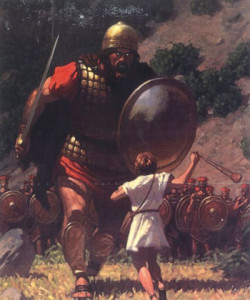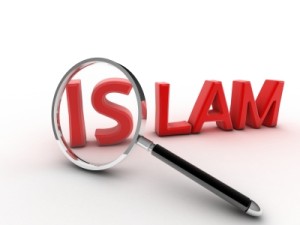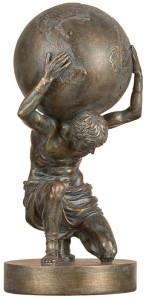 Is Islam relevant in the current day and age? This is a burning question in the hearts and minds of many Muslims, particularly amongst those in the Western diaspora. A heartening answer can be obtained by highlighting principles of the Quran which are both timeless and universally applicable. This approach is decidedly Qurancentric, a term which signifies the elevation of the Quran to its rightful status as primary, perhaps only source of Islamic guidance. In this approach, other “Islamic” bodies of work including: 1) hadith (narrations attributed to the Prophet Muhammad (s)), 2) fiqh (rulings based on medieval interpretations of the Quran and hadith), and 3) Islamic history, are largely ignored (aside for some anecdotal and historical value) due to their: basis on hearsay, contradictory nature, centuries old biases against non-Muslims and women, and promotion of certain beliefs which are unjust, immoral, and/or irrational. Qurancentricism is conducive to developing a universalist approach, in that it allows one to: 1) expound core benevolent Islamic values which all civilized humans have aspired to throughout history, and 2) recognize, respect, and encourage the implementation of said principles in all societies, regardless of their religious makeup.
Is Islam relevant in the current day and age? This is a burning question in the hearts and minds of many Muslims, particularly amongst those in the Western diaspora. A heartening answer can be obtained by highlighting principles of the Quran which are both timeless and universally applicable. This approach is decidedly Qurancentric, a term which signifies the elevation of the Quran to its rightful status as primary, perhaps only source of Islamic guidance. In this approach, other “Islamic” bodies of work including: 1) hadith (narrations attributed to the Prophet Muhammad (s)), 2) fiqh (rulings based on medieval interpretations of the Quran and hadith), and 3) Islamic history, are largely ignored (aside for some anecdotal and historical value) due to their: basis on hearsay, contradictory nature, centuries old biases against non-Muslims and women, and promotion of certain beliefs which are unjust, immoral, and/or irrational. Qurancentricism is conducive to developing a universalist approach, in that it allows one to: 1) expound core benevolent Islamic values which all civilized humans have aspired to throughout history, and 2) recognize, respect, and encourage the implementation of said principles in all societies, regardless of their religious makeup.
The Quran refers to Islam as Deen, which roughly translates as “way of life” or “system of governance.” This definition stands in stark contrast to that of “religion,” a set of dogmas and prescribed rituals established in pursuit of a spiritual “connection with God.” In this age of radical “Islamist” groups such as ISIL, an all-encompassing understanding of Islam may appear threatening to many. Such is the post stress trauma of so-called Islamist movements that many a traditionalist scholar, even relatively enlightened ones such as Mr. Javed Ghamidi, have proclaimed Islam to be a very personal set of purifying beliefs and absolutely nothing more. However, even a cursory reading of the Quran speaks to the contrary. What personal set of beliefs delineates the workings of contracts (2:283), collection of government taxes (9:11), war and peace (6:39, 8:61), and crime and punishment (33:60)? One can go on and on expounding the holistic nature of the Deen of Islam as described in the Quran. Then what differentiates this Deen understanding from the radical Islamist ones? Again, the answer lies in the Qurancentric approach. Once unshackled from the limitations of fiqh, hadith, and Islamic history, we are left with benevolent universal themes revealed to us by the One Creator representing Islam, such as: Human Rights, Justice, Law and Order, Egalitarianism, Equitable Distribution of Resources and Opportunity, Reason, Ethics, a Moral Code, Unchanging Natural Laws, and Humanitarian Service.
It is remarkable to note how these universal values, although emphasized far more in the Quran, have become supplanted by less prominent, secondary ones. The most damaging element of this usurpation has been the establishment (via hadith rather than Quranic injunction) of the five “pillars” of Islam: Shahada (declaration of faith), Salat (traditionally translated as ritual prayers), Sawm (abstinence), Zakat (obligatory alms, essentially a tax), and Hajj (pilgrimage to Mecca). (The full extent to which these five concepts have become misapplied or watered down in scope is a discussion for another essay). Though important concepts, the five pillars fail to remedy many critical failings of men. For example, eschewing evil and enjoining right, standing for justice, jihad (internal and external struggle for the truth), the pursuit of knowledge, the use of reason, and avoiding blind following, though emphasized dozens of times more than sawm or hajj in the Quran, are missing altogether. So as for character building, the five pillars fall far short. Furthermore, it is revealing that not one of the Messengers of the Quran risked his life for the right to pray, fast, or lead a pilgrimage with his people (nor would a pharaoh or Nimrod be threatened by these ritual acts alone). Rather, every Messenger’s common aim was the establishment of an egalitarian society via dynamic social and economic revolution. Indeed, if there is a true pillar of Islam, it is the entire Quran which espouses ideals all benevolent societies aspire to, while relating tales of the decline of civilizations which ran programs counter to these universal truths.
One exemplary case study supporting the universalist approach is the story of Prophet Moses (s), one of the most mentioned figures in the Quran. His story embodies recurrent Quranic themes such as the struggle of Good vs. Evil, Justice vs. Tyranny, Human Rights vs. Slavery, and Reason vs. Blind Following. The five traditional pillars are nowhere to be found as core principles in the Exodus story, nor are they translatable to the struggle of the Common Man throughout various eras and societies. In marked contrast, the aforementioned ideals are vibrant in all revolutions and rebellions throughout history, such as Prophet Muhammad’s (s) mission, the American Revolution, the Women’s Suffrage movement, the Civil Rights movement, the Independence of the Subcontinent, and so on. Furthermore, the astute researcher can readily see the Divine themes embodied in benevolent secular documents such as the Magna Carta, the Bill of Rights, the American Constitution, and the UN Charter. Freedom of religion and expression (2:256), equality before the law (4:135), presumption of innocence (49:6), gender equity (4:32, 33:35), social safety nets (9:60), rule of law (33:60), and strong ethics (70:21-70:33) are not only hallmark values of the Quranic state, but of all advanced societies. Such a universalist understanding helps one to appreciate the eternal truths inherent in the Quran very effectively.
Critics of the universalist approach raise some objections. First, some feel it lacks in “spirituality.” However, what could be more spiritual or God-connected than recognizing that all that is good and harmonious in the Universe emanates from the One God, while upholding His revealed values wherever we may be? Other critics feel that this approach deemphasizes the ritual in favor of humanistic values. Does not the Quran do the same here: “Righteousness is not that you turn your faces toward the east or the west…(2:177)” and here: “It is not their meat nor their blood, that reaches Allah: it is your righteousness that reaches Him…”(22:37). Indeed, many an “Islamic” nation’s mosques are full while its citizens wander dilapidated streets with empty minds and stomachs. This is not Islam…as keenly articulated by Mufti Muhammad Abduh, the great rationalist and reformist 19th century Egyptian scholar: “I went to the West and saw Islam, but no Muslims; I got back to the East and saw Muslims, but not Islam.” In line with this fine observation, it is notable that the universalist approach opens a benevolent door for the salvation and eternal success of non-Muslims. Although the traditionalist mindset is geared toward a quasi Chosen People concept for Muslims (though this is soundly rejected by 49:13), a touchstone verse for universal grace dismisses such exclusivity:
2:62: “Indeed, the believers, Jews, Christians, and Sabians—whoever ˹truly˺ believes in God and the Last Day and does good will have their reward with their Lord. And there will be no fear for them, nor will they grieve.”
Certainly such an understanding troubles many traditionalist Muslims, but we must be careful to avoid judging others. For the harshest judgment is reserved for those hypocritical societies and individuals that proclaim themselves ‘Muslim’ while crushing human rights and reason:
4:145: “The hypocrites will be in the lowest depths of the fire; no helper wilt thou find for them.”
In conclusion, I encourage my fellow Muslims to explore a universalist understanding of Islam based on a Qurancentric approach. In stark contrast to the constraining belief system born of the traditionalist schools, this approach not only liberates the mind, body, and spirit from man-made systems, but also retools the mindset of Muslims to accept and embody Citizen-of-the-World values. Our children deserve better than the medieval musings of Ibn Taymiyyah and Ghazali to understand the relevance of Islam in today’s day and age. A universalist approach for understanding Islam, grounded in Qurancentric themes, is rational, humanist, versatile, and conducive to progressive values which are the need of the hour.




 A recent spate of lectures on the supernatural in major Pakistani universities is quite the assault on Reason. The speakers have drawn packed houses on paranormal topics such as jinns, black magic, and glimpses into the afterlife. Pervez Hoodbhoy, in a recent Dawn article, (
A recent spate of lectures on the supernatural in major Pakistani universities is quite the assault on Reason. The speakers have drawn packed houses on paranormal topics such as jinns, black magic, and glimpses into the afterlife. Pervez Hoodbhoy, in a recent Dawn article, (





